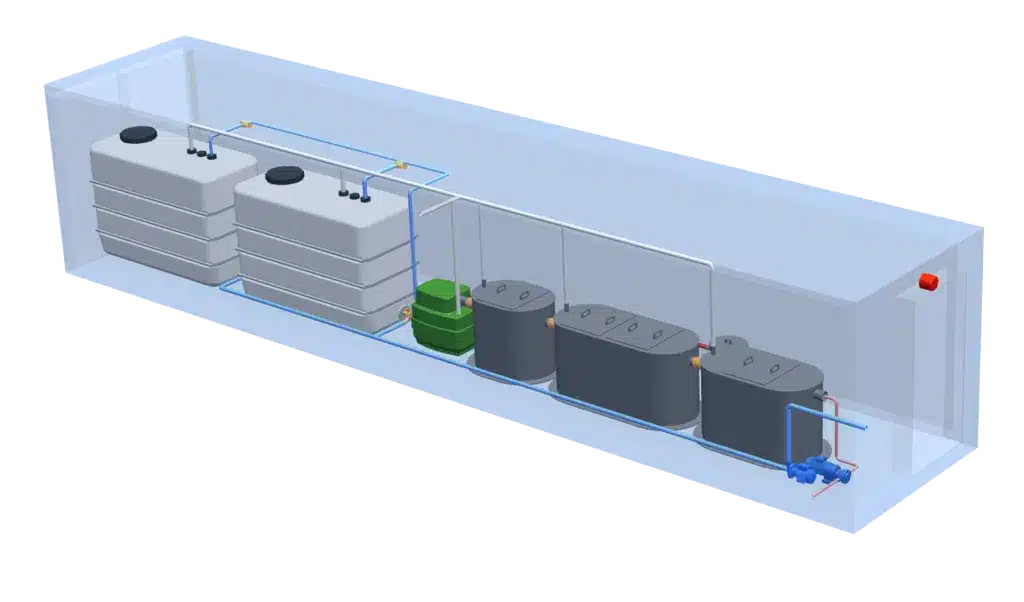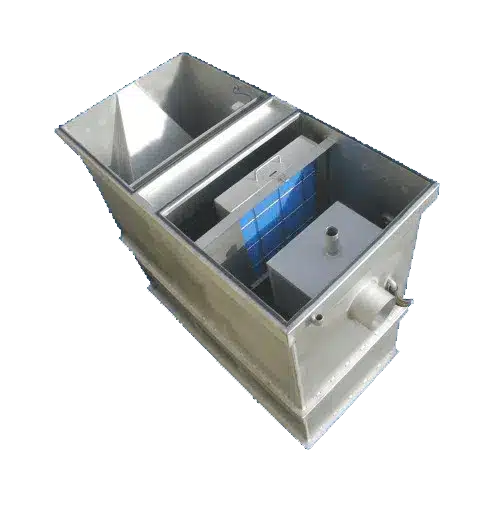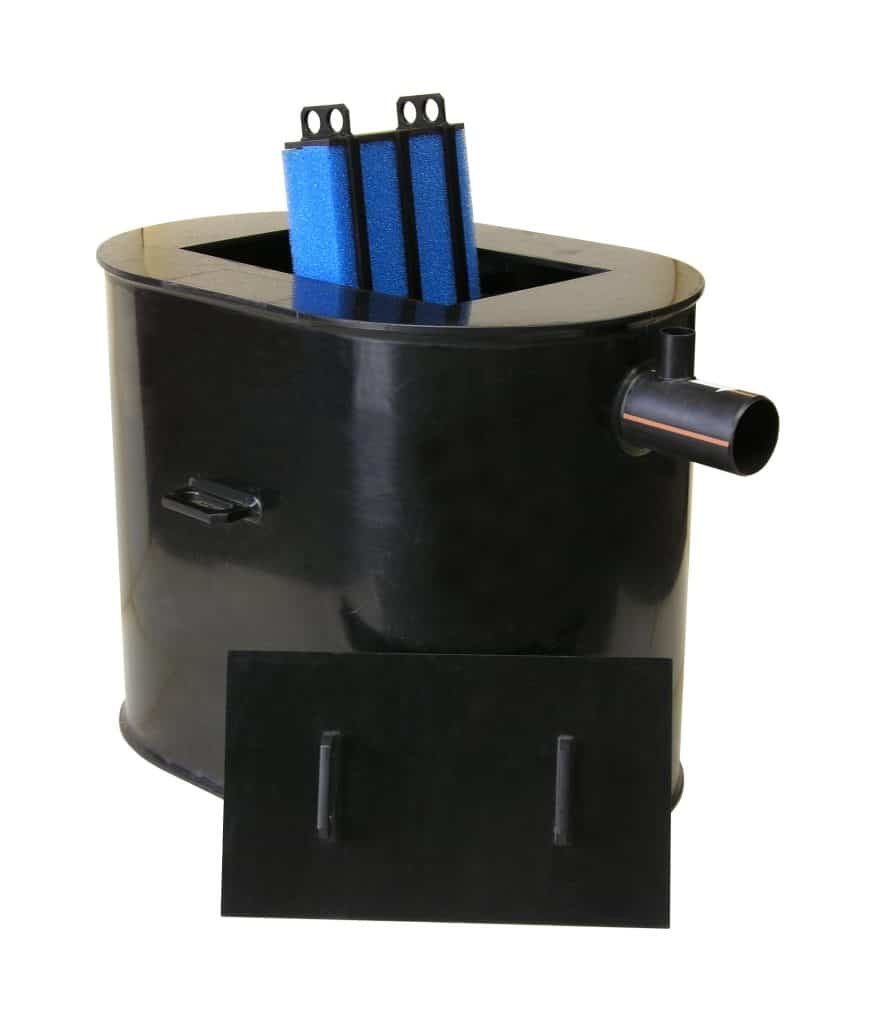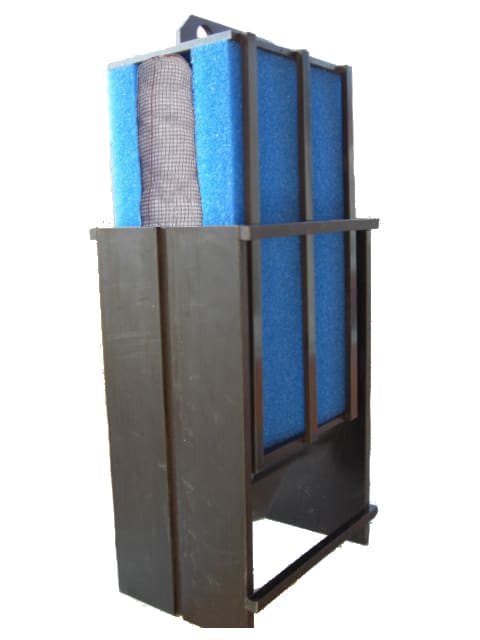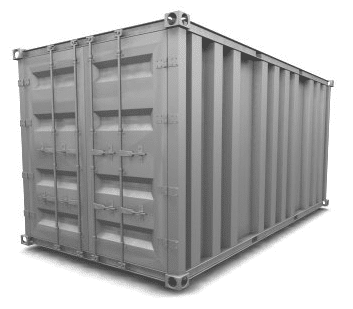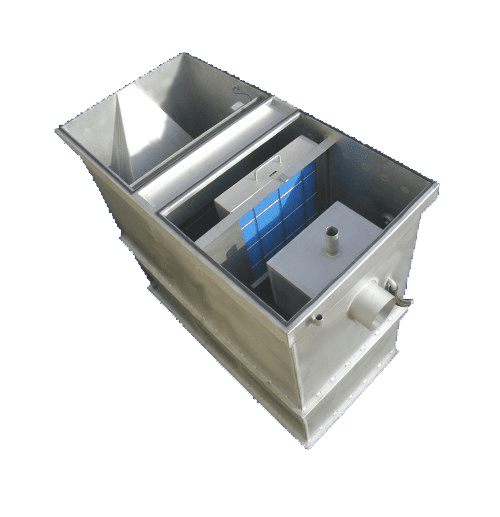Do you know how important oil water separators are in West Virginia? They help keep the state’s water safe. West Virginia is serious about protecting its water and following the rules. This means above ground oil water separators (OWS) are key to keeping water clean for everyone.
The Aboveground Storage Tank Act shows West Virginia’s commitment to clean water. It sets clear rules for tank owners and operators. This helps keep people and the environment safe. By focusing on above ground OWS, the state works to stop pollution and protect its water sources.
Key Takeaways
- West Virginia Above Ground OWS are vital for environmental protection
- The Aboveground Storage Tank Act regulates storage devices over 1,320 gallons
- Oil water separators help maintain clean water for various sectors
- Regulatory compliance is crucial for tank owners and operators
- Above ground OWS play a key role in safeguarding public health and safety
Understanding the Aboveground Storage Tank Act in West Virginia
The Aboveground Storage Tank Act is key to protecting West Virginia’s water and public health. It’s a vital law that helps keep our water safe. Let’s explore what makes this law so important.
Legislative Findings and Public Policy
West Virginia sees clean water as essential for health, quality of life, and economic growth. The act sets a public policy to protect our water. It does this by closely watching over aboveground storage tanks. This way, we protect the environment while still supporting industry needs.
Key Definitions in the Act
The act clearly defines important terms like “aboveground storage tank,” “operator,” and “owner.” Knowing these terms is key to following West Virginia’s environmental laws.
Scope and Exemptions
The act covers a lot, but not everything. It doesn’t apply to shipping containers, barges, swimming pools, or drinking water devices. The West Virginia Department of Environmental Protection makes sure the act is followed. They work to protect our water and promote conservation across the state.
The Importance of Oil Water Separators in West Virginia
Oil water separators are key in West Virginia for protecting the environment and handling industrial waste. They keep water clean and support the state’s economy.
Environmental Protection and Regulatory Compliance
In West Virginia, oil water separators are vital for lessening the environmental harm from industrial activities. They help oil and gas companies follow strict rules by cleaning wastewater before it’s let out. This cuts down the chance of water pollution and shields local ecosystems.
Preserving Water Resources for Public Health
Clean water is crucial for public health in West Virginia. Oil water separators are important in keeping drinking water safe. They stop pollutants from getting into rivers and streams. By taking out oil and other bad stuff from runoff, these systems keep water resources clean across the state.
Supporting West Virginia’s Industries
West Virginia’s economy depends a lot on mining and oil and gas. Oil water separators let these industries work responsibly by handling their wastewater well. High-efficiency separators can take out up to 99.9% of free oil and solids from wastewater. This lets companies follow environmental rules and stay productive.
West Virginia Above Ground OWS: Features and Benefits
Above Ground Oil Water Separators in West Virginia are leading the way in protecting our environment. They use advanced coalescing technology for top-notch separation. This means they remove hydrocarbons from water, helping industries follow strict discharge rules.
The newest models are setting high standards, beating North American benchmarks. They can split motor oil, diesel, gasoline, and jet fuel from water with great accuracy. Some units can even get down to 5 PPM, far below the allowed 10 PPM limit.
They’re built with stainless steel for lasting use. The PVC coalescing media packs improve separation, tackling even tiny bits of emulsified oil. Plus, adjustable oil skimmers make them work well under different conditions.
These Above Ground Oil Water Separators are all about top performance and flexibility. They help businesses follow environmental laws and improve their operations. By choosing these systems, companies in West Virginia can safeguard water resources and show they care about the planet.
Selecting the Right Oil Water Separator for Your Needs
Choosing the right oil water separator is important. It must perform well and meet environmental laws. Let’s look at what to think about when picking one.
Flow Rate Considerations
Flow rate is key when picking an oil water separator. They can handle 1 to 100 gallons per minute. Think about your needs to pick the right size. A separator that can’t handle your flow rate won’t remove oil well and could cause legal problems.
Material and Construction Options
The materials used in making separators matter a lot. Stainless steel is often chosen because it doesn’t rust and lasts a long time. Heavy-gauge 304 stainless steel is very strong and reliable. Think about where you’ll use it to pick the best materials.
Additional Features for Enhanced Performance
Look for features that make separators work better. Integrated sumps make cleaning easier, and slant rib clarification plates remove solids better. Oil content analyzers keep an eye on oil levels, ensuring good separation. These features help you meet legal standards and work better.
By looking at flow rate, materials, and features, you can find an oil water separator that fits your needs and protects the environment.
Installation and Maintenance of Above Ground OWS in West Virginia
Installing an OWS correctly is key in West Virginia. First, level the ground and make a solid base. Place the unit where it won’t get walked on and link it to the current wastewater system. Make sure it meets West Virginia’s rules for venting and safety.
Keeping your OWS in good shape is important. Clean the coalescing media every month to stop blockages. Remove oil and solids every three months, or more if it’s needed. Check all parts for any damage or wear during maintenance.
West Virginia says you must keep detailed records of maintenance. Write down when you clean, how much oil you remove, and any repairs. These records prove you’re following environmental laws.
Following the maker’s instructions is vital for your OWS to work well. Each OWS is different in what it needs for upkeep. Train your team on the right steps to take. This way, your OWS will work well and follow West Virginia’s environmental rules.
Regulatory Compliance and Monitoring for Above Ground OWS
Running above ground oil water separators in West Virginia means following strict rules. The West Virginia Department of Environmental Protection makes sure of this. They do it to keep the state’s water and environment safe.
These separators are crucial in storm water systems. They process runoff to meet the US EPA’s Clean Water Act standards. With effective oily water treatment, facilities protect the environment and dodge big fines.
West Virginia Department of Environmental Protection Guidelines
The department has clear rules for how to run and keep up oil water separators. These rules cover things like putting them in, checking on them, and reporting. It’s important for operators to keep up with these rules to avoid fines and protect the environment.
Oil Content Analysis and Reporting
Checking oil content often is key to following the rules. Advanced tools use light and sensors to spot tiny amounts of oil in water. If oil levels get too high, these systems can send out warnings. This lets people take action fast.
Record Keeping and Inspections
Keeping good records is vital to show you’re following the rules. Operators need to keep track of oil content readings, upkeep, and any issues. State officials check these separators often. They make sure they work right and meet all the standards.


